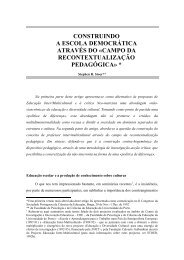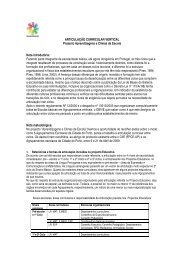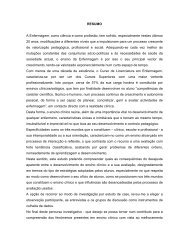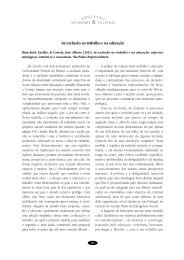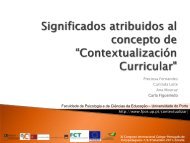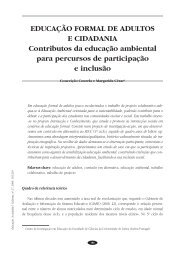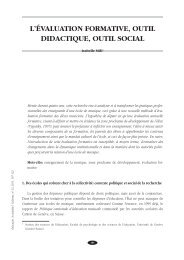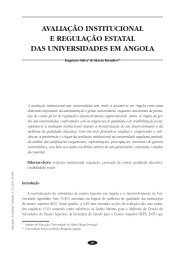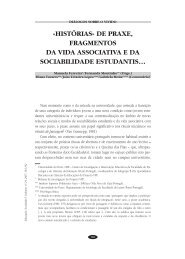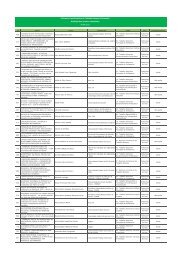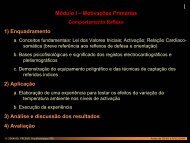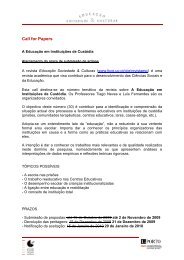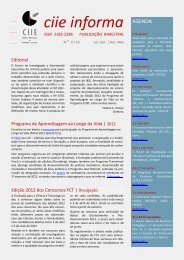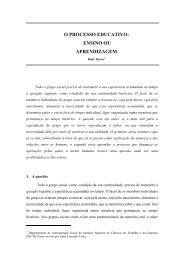REFLECTINGON AN ACADEMIC PRACTICE TOBOOST GENDER ...
REFLECTINGON AN ACADEMIC PRACTICE TOBOOST GENDER ...
REFLECTINGON AN ACADEMIC PRACTICE TOBOOST GENDER ...
Create successful ePaper yourself
Turn your PDF publications into a flip-book with our unique Google optimized e-Paper software.
daily live (Markowitz, 2005; Riera & Valenciano, 1991), probably because they are facing a«new sexism», much more naturalized and therefore invisible (Riley, 2001).In the same line, Alberdi, Escario, and Matas (2000) report that people would start to perceivegender discrimination in their own lives when they are between 23 and 35 years old,coinciding with their entrance in the workplace, with the independence from their parents’residence 5 and, for women, with the experience of maternity. Nevertheless, when theybecome aware of an unequal treatment, they generally respond with «little fight in their positionsand moderation of their ambitions» (Alberdi, Escario, & Matas, 2000: 264), and do not actfor a direct transformation of their daily life.The reality we shortly presented in this section made explicit the absolute need of an indepthwork with future schoolteachers and, at the same time, shows how demanding will bethat process according to the fact that most of the students are of a generation and age groupthat face more difficulty to recognize and work on their own gender stereotype reproduction.Therefore, it becomes urgent a collective reflexion on how we, as teachers, try to deal withsuch arduous task. In order to do so, in the next section we will start introducing somemethodological thoughts on our research and class dynamics.Teaching and resear ching methodologiesThe experience we present was not designed, since its beginning, as a research. On thecontrary, it was supposed to be simply part of a normal teaching process. Nevertheless, differentelements brought about a change of perspective: the specific interest of the class teacher(B. Biglia) on feminisms and on action research; the detected need of systematize teachingexperience in this area, due to the fact that there is few literature on that topic; the beginningof a PhD thesis research process on young university students and feminism perceptions (byA. Velasco); the stimulus offered by a call for papers of the 5th EDUC8 Workshop on Why DoesGender Still Matter in Education?For all those reasons, we decided to transform a teaching practice into an action researchprocess aiming to develop a gender perspective in the course for future school teachers andto improve materials and methodologies in order to do that. Because of that, as we will explainlater in more detail, we won’t focus our analysis on students’ gender «stereotypes» as such, butrather on how these made up the material that we used in the classroom in order to stimulatestudents’ awareness.5That in Spain, as in other Latin countries, is a quite recent experience.111



